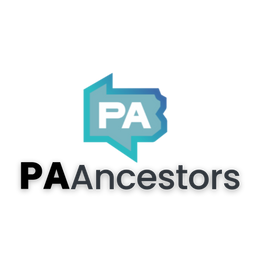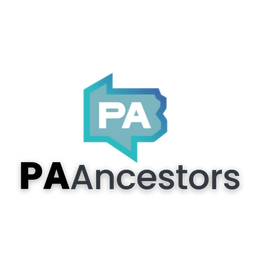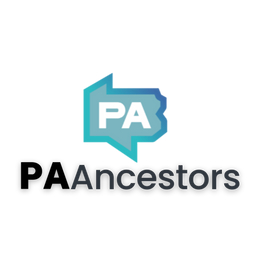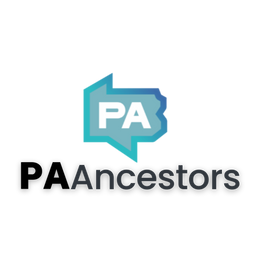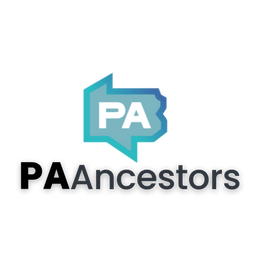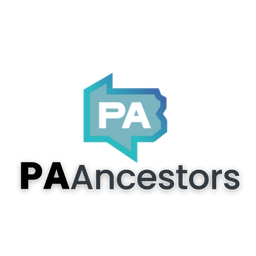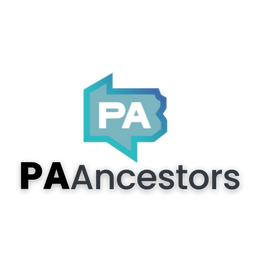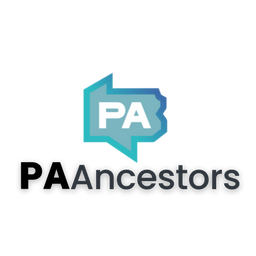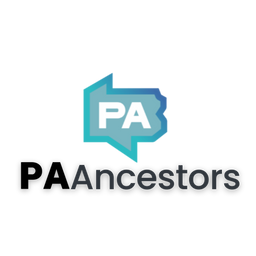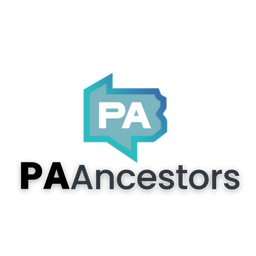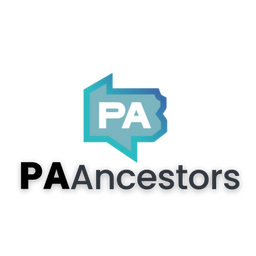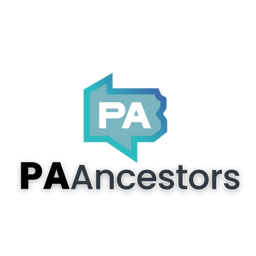Book: Archives in Pennsylvania for Genealogy Research
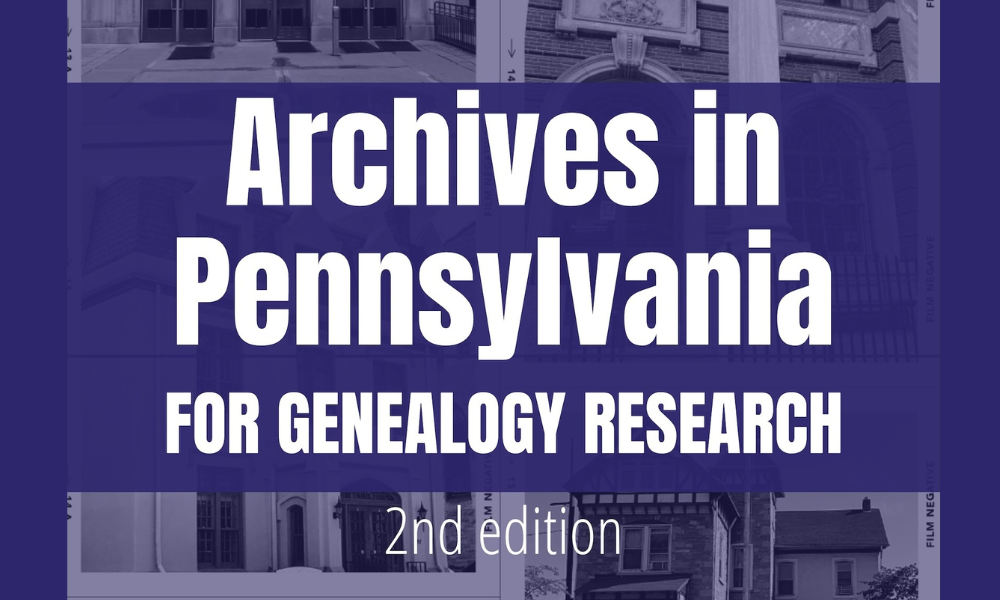
Just for members, here is the entire text of Archives in Pennsylvania for Genealogy Research. The introduction is below, followed by links to each chapter.
If you would like to purchase a copy of the book, you can find it on Amazon https://www.amazon.com/dp/B0DQX915KK.
Introduction
How would it feel to hold a paper from 100 years ago with your ancestor's name on it?
What about a document they signed in 1750? Or perhaps a photograph from 1910 that you never knew existed?
All of this is possible when you research in archives.
For most of us our daily attention is filled with digital images on screens – phone screens, computer screens and television screens.
Meanwhile, quietly waiting for our attention, in almost a thousand locations across Pennsylvania, are millions of items created by our ancestors. Photographs, journals, diaries, letters, ledgers, and government records and more, are all stored, organized and carefully preserved in archives.
What do I mean by archive?
An archive is a collection of unique historical materials preserved and available for research. The materials are typically documents such as books, manuscripts, journals, diaries, letters, ledgers, and business or government records.
How does an archive differ from a library?
A library is a collection of books, movies, music and other published materials available for borrowing to library card holders. Library users take items home for a specific period of time and then return them to the library. The materials are typically recent publications, and multiple copies are available. Library materials are also able to be replaced if damaged or lost. Libraries have a complete catalog of everything in their collection, and it is easily searchable in a computer database by author, title, topic, or category.
In archives, items remain in the archives and do not leave the building. Archival collections are also not as easily searchable which will be covered more in Chapter 3: Using Catalogs and Finding Aids. Archives are the places where we store materials from our past, which are precious to us. They provide one-of-a-kind genealogical sources of our ancestors and are invaluable for research.
Why do I call so many places an "archive?"
Some readers of this book may quibble with the use of the word "archive" for all the places I have listed. Throughout the writing of this book, I could hear statements such as: "Don't you know that archives are run by professional archivists and those local organizations with their volunteers are not archives?" and "The term you should be using is repository."
My response is as follows: Local genealogical societies and historical organizations have done more to preserve the history of the peoples of Pennsylvania than most "official" positions has ever done. In fact, some of the largest record loss we have experienced as a state has been through government offices putting historical records in trash dumpsters once they were transcribed, microfilmed, or digitized. Later, people realized that the records which were discarded were not transcribed completely, the microfilm was damaged, or the digital files were corrupted. Anyone saving history is an archivist.
Local community volunteers and family historians preserving their own heritage do not throw out anything from the past. They preserve and care for their history as much or more than institutions have done. To dismiss, denigrate, or ignore the over 800 local archives around the state is to completely miss out on the best Pennsylvania has to offer.
The history of genealogy in America has been a practice of classism, sorting people based on their "pedigree". Those who labeled themselves the best pedigree, worked hard to erase the history of people they considered "low status". Fortunately, thanks to dedicated individuals who hid records from the fanatics, we still have archival records for research. But this drive to destroy the past is ever present, and I am opposed to all efforts to eliminate, or even to edit, historical records.
How this book is organized
My intention for readers of this book is to feel empowered to research in any archive in Pennsylvania. The method and techniques you learn here can be transferred to any archive in the world. The planning, thought process, and considerations are similar no matter the geographic location.
Chapter 1 gives examples of four different types of archival collections in Pennsylvania that can help you in your research. There are images and explanations of how to search these documents and what they can tell you.
Chapters 2 through 4 cover a step-by-step process on how to research in archives. You will learn how to create a plan, use catalogs and finding aids, then make the trip to the archive. If you cannot visit an archive in person, do not fret! You will learn how to request research from home too.
Chapters 5 through 11 are all the archives in Pennsylvania organized by the focus of their collections. The archives are also then organized by the geographic area where each is located. Each chapter begins with background information on the type of collections made by the archives in the chapter, followed by listings of those archives.
Chapter 12 focuses on wrapping-up archival research and discusses copyright, publishing considerations, and organizing your files. An entire book could be written on the steps mentioned here, so take this as a starting point.
Lastly, be sure to check out the bonus materials at the end of the book. The forms included will help you work through a research problem and determine which archives would help you most.
Everything in this book, including website links, is accurate as of November 2024. Endnotes are provided at the end of each chapter, rather than at the end of the book, so they are easier to reference. The images and examples used in the book are from my own archival research and intended as examples of what is possible to find in records, not a prescriptive order of what any one person should research. As with all genealogy research, there is no guarantee of what can be found by any researcher in any archive, and anyone taking on archival research does so with this understanding.
The process of creating this book
Researching and writing this book took place over several years. The chapters on how to research were all originally written as articles on my website, paancestors.com. Readers of the PA Ancestors Discoveries newsletter may also recognize portions of these chapters from the newsletter. The listing of the archives themselves were compiled during the shutdowns of the Covid pandemic.
I delayed publishing this book until 2023 after archives re-opened. Many archives were closed to researchers for over two years from March 2020 until summer 2022 or longer. When they re-opened, it was with half the research hours, and appointments required weeks to months in advance. Researchers have also been affected by the move of The Pennsylvania State Archives to a new building and the extensive renovation of the State Library of Pennsylvania. I look forward to a day when archives can return to pre-Covid accessibility.
I am grateful for my family's support throughout the creation of this book. Matt, Cassie, and Elle heard many fun facts about archives around Pennsylvania at dinner each evening. My family is also considerate of the number of hours it takes to produce something like a book. Many nights and weekends were "Mom is writing her book now."
While I followed the process in writing my first book, Pennsylvania Vital Records Research, I still struggled to get it to the finish line. Thank you to PA Ancestors Members Janet and Kathleen for being beta-readers of the first draft. Your comments and suggestions made this a better book. My editor Gaynor Haliday corrects all my grammar and style and makes my writing shine. I appreciate her patient and deliberative work.
Writing takes a level of discipline and commitment that I never knew until last year. Growing up, I was the kind of student who never really studied in school and threw together writing assignments in frantic all-nighters. Now in my second spring of life, I am the kind of person who is spending months creating books. Transforming into this person later in life has been a welcome surprise.
Thank you for purchasing and reading Archives of Pennsylvania. I love to hear from readers, and can be reached at hello@paancestors.com. If this book has helped you in any way, I would appreciate you sharing it on Amazon or Goodreads. Authentic reviews help other genealogists find the book.
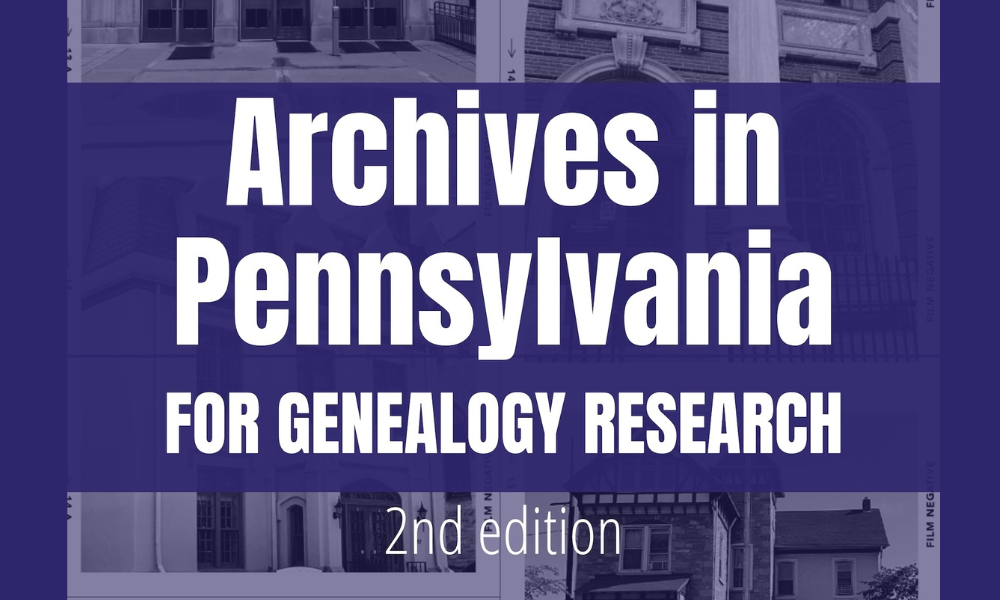
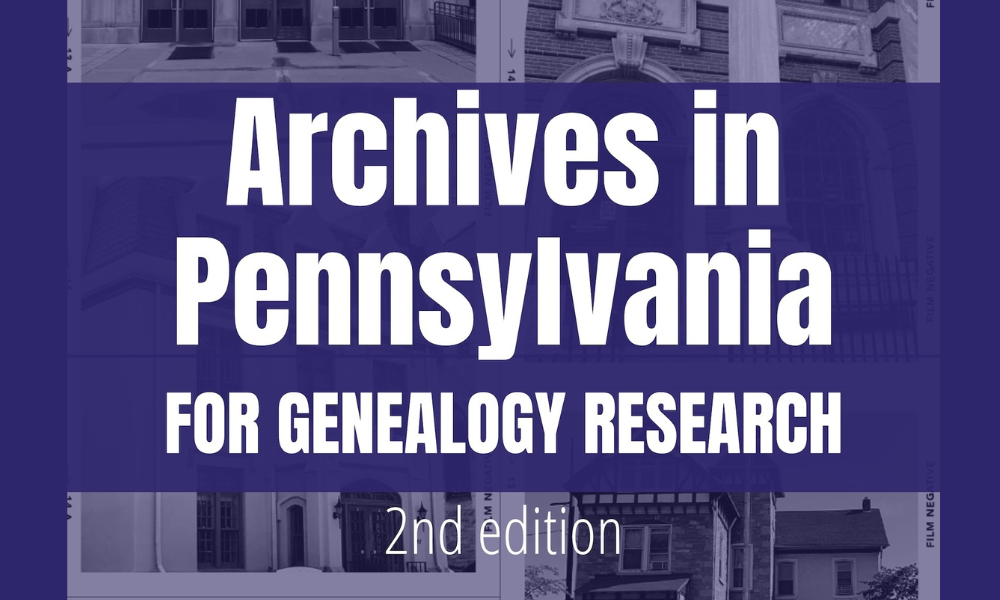
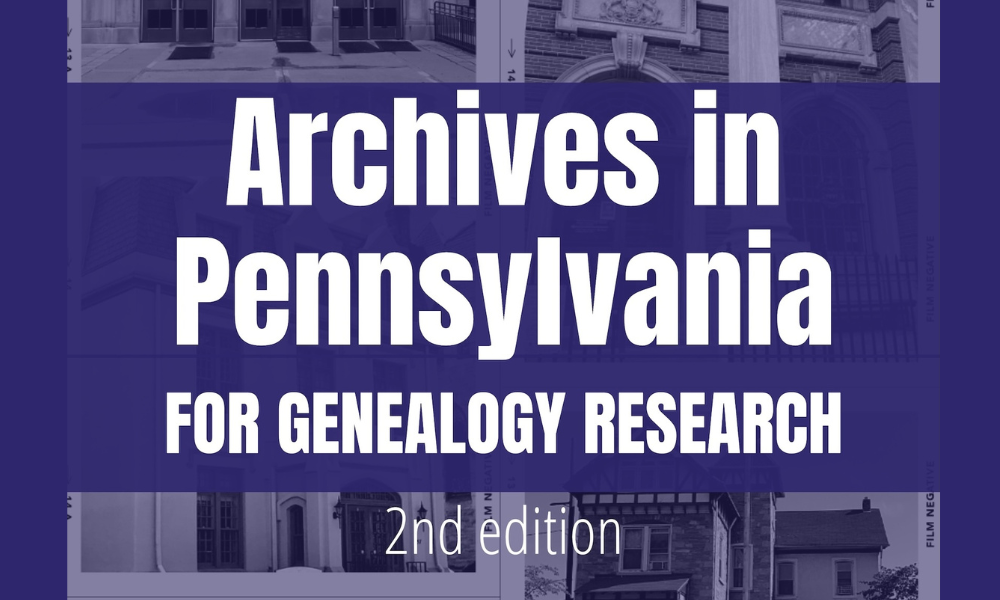
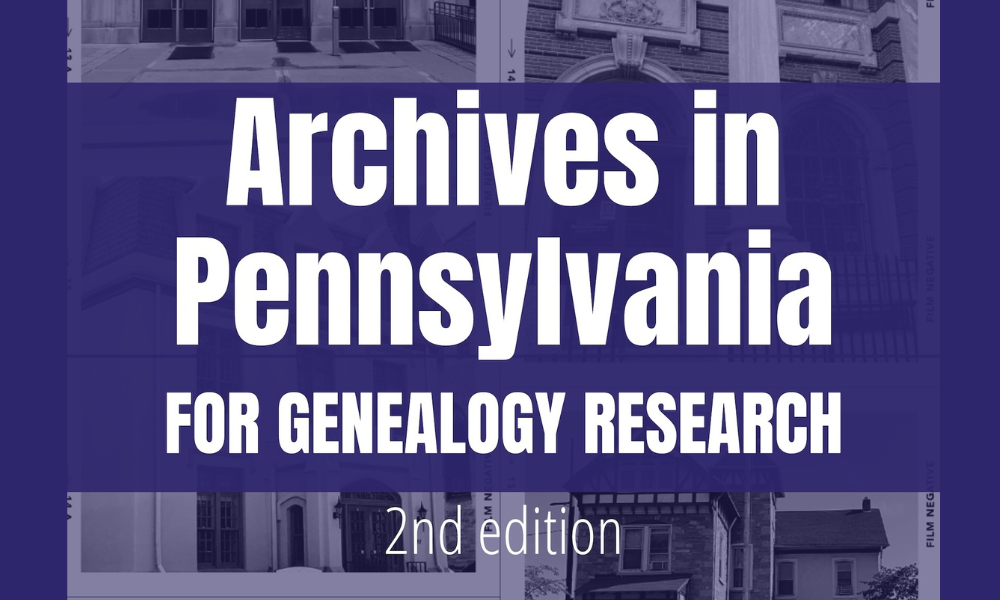
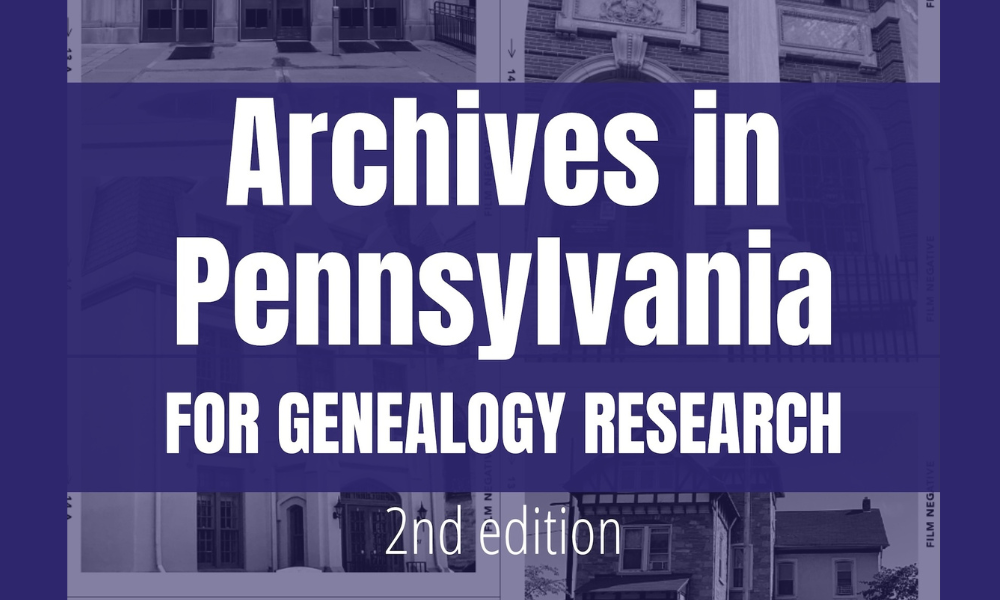
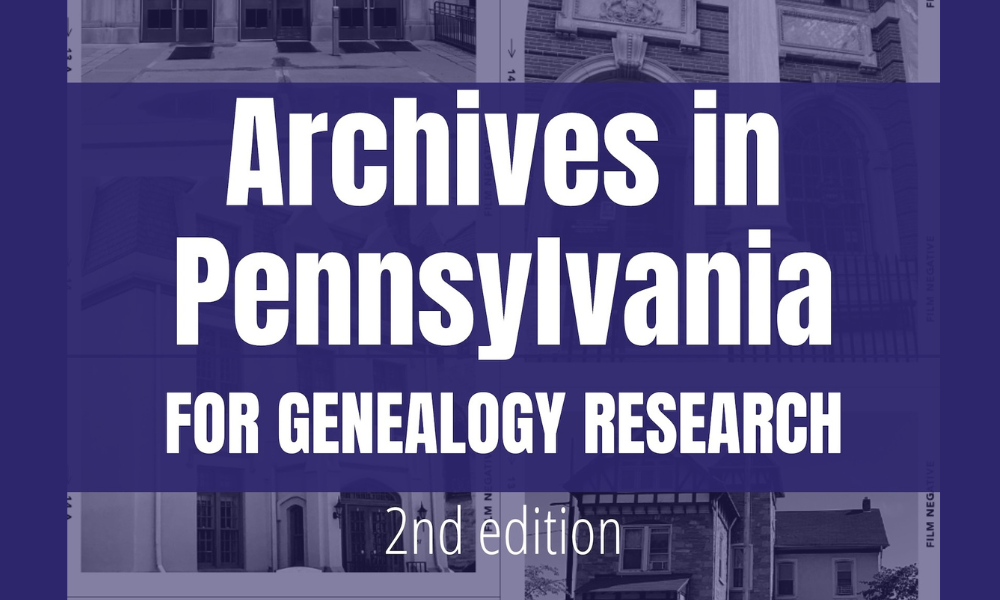
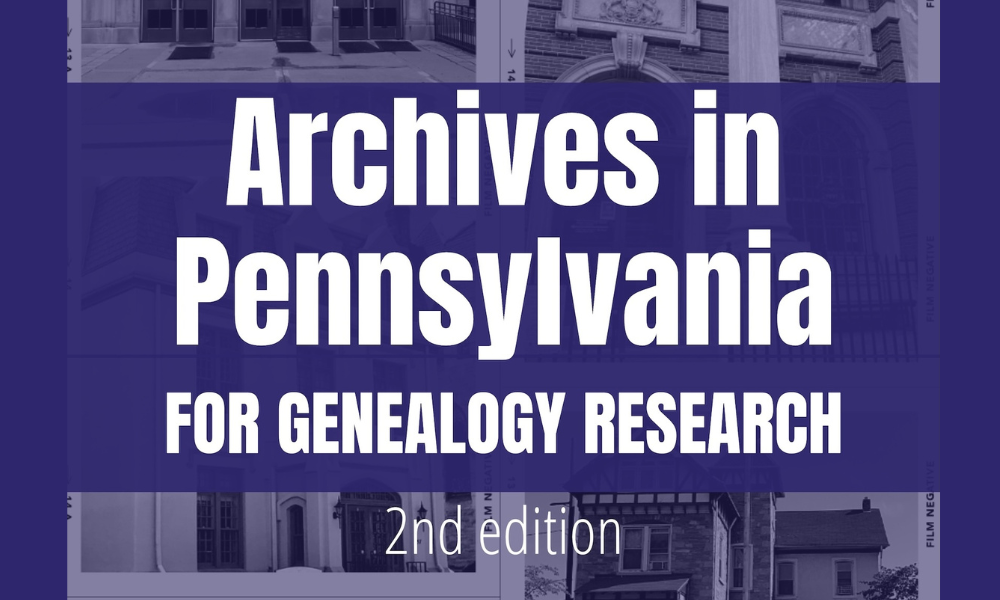
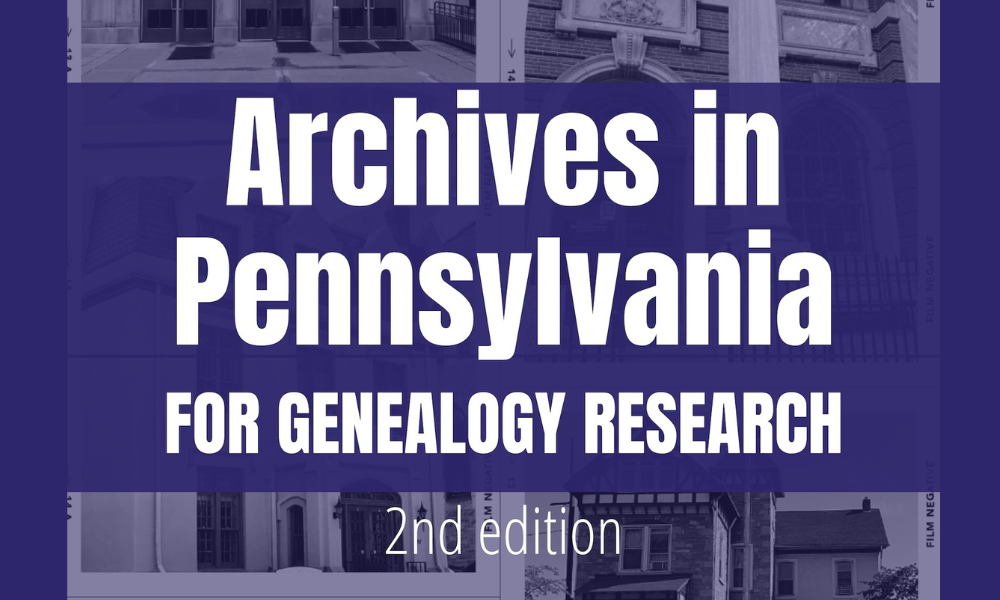
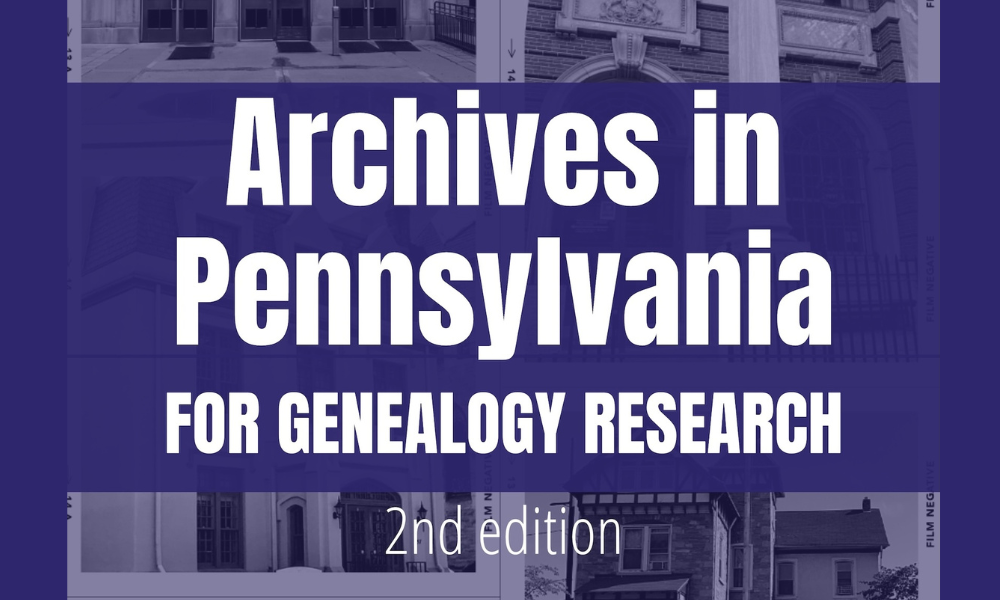
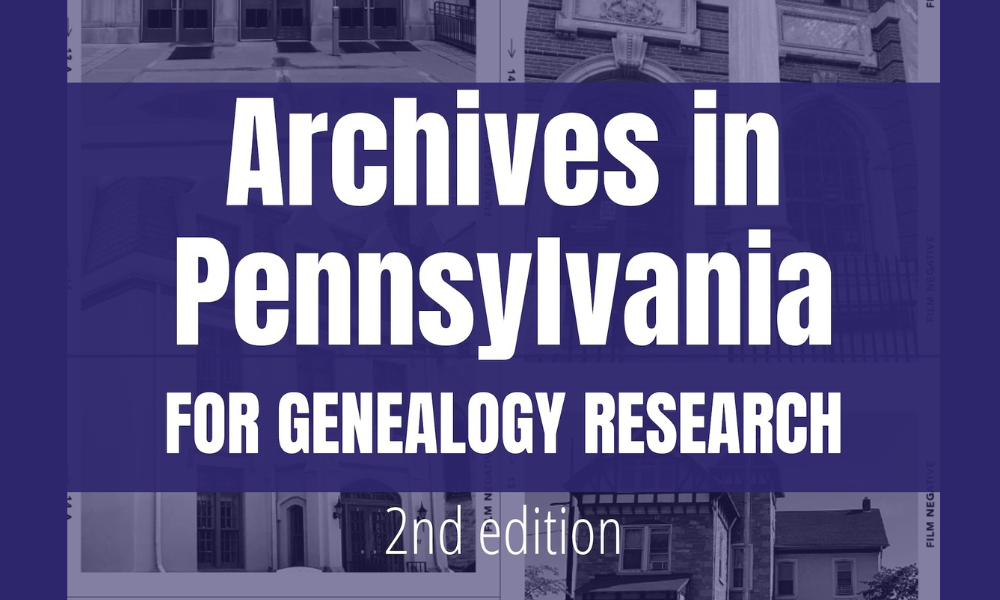
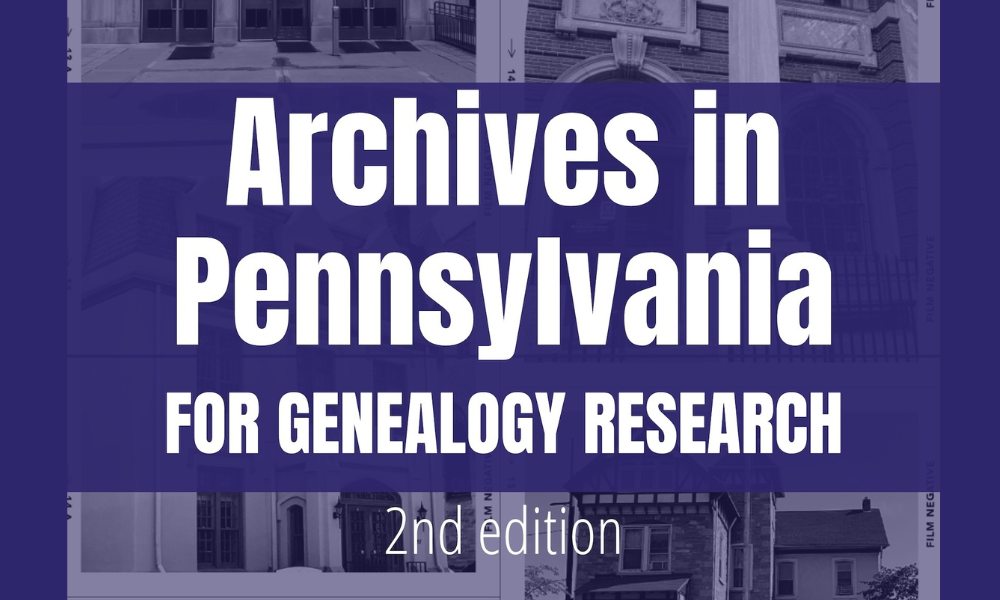
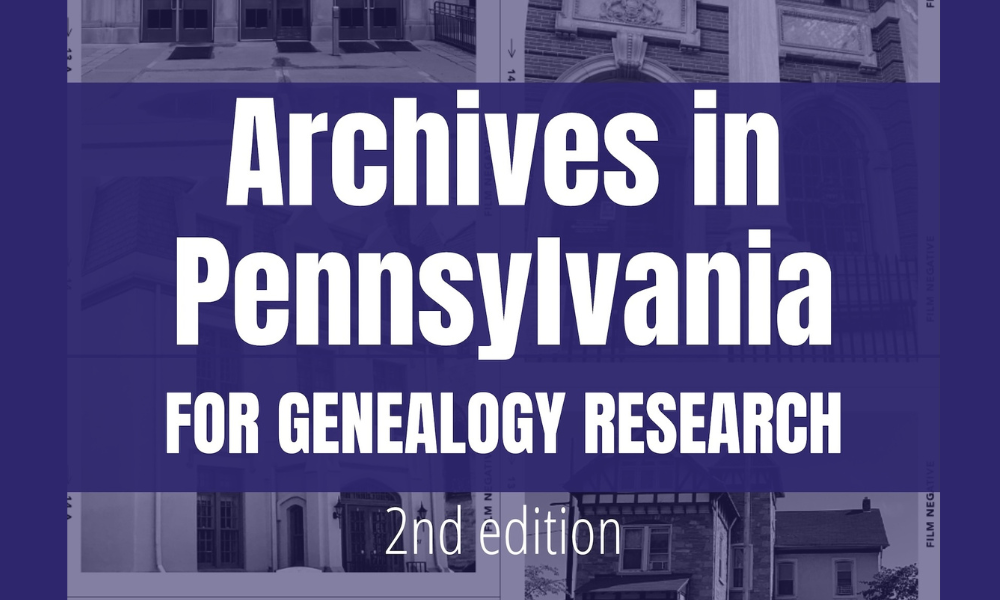
© 2019–2024 PA Ancestors L.L.C. and Denys Allen. All Rights Reserved.
